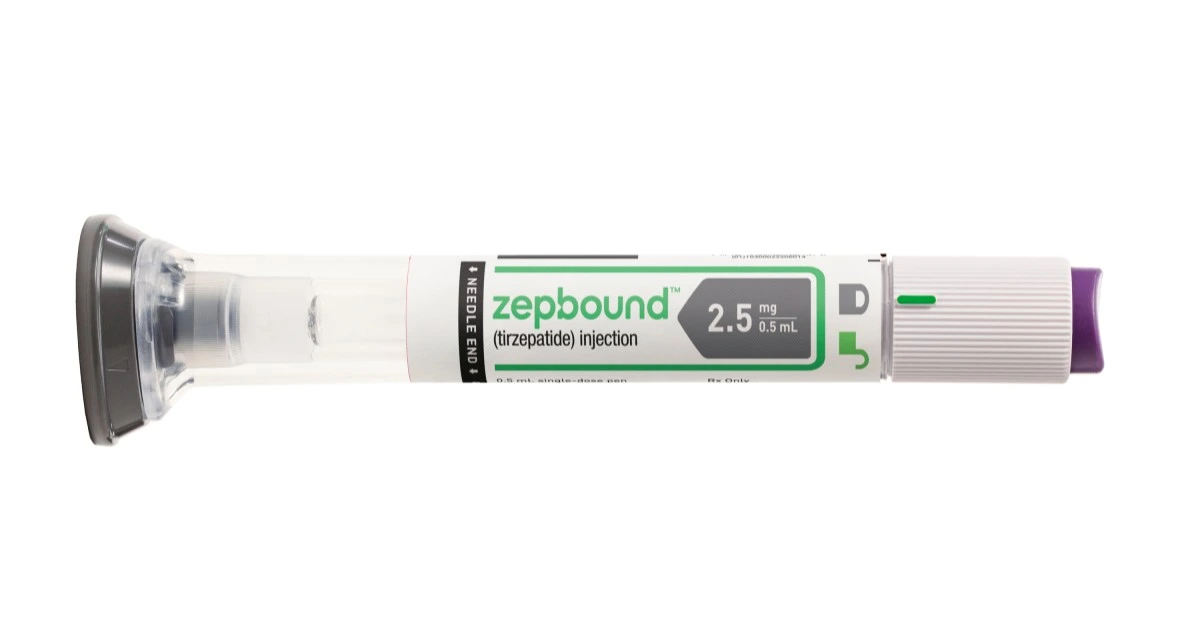
USA – Eli Lilly’s obesity drug, Zepbound (tirzepatide), has received expanded approval from the U.S. Food and Drug Administration (FDA) to treat moderate to severe obstructive sleep apnea (OSA) in adults with obesity.
This approval marks a significant milestone as Zepbound becomes the first prescription medication authorized to manage OSA, a condition historically treated using continuous positive airway pressure (CPAP) devices.
OSA is a common sleep disorder characterized by repeated interruptions in breathing due to the relaxation and narrowing of the airway during sleep.
The disorder is closely linked to obesity and aging, and it poses serious health risks, including cardiovascular complications and diminished quality of life.
Traditional treatment involves the use of CPAP machines, which help keep airways open during sleep.
However, the advent of Zepbound offers a new, non-invasive alternative for managing the condition.
The FDA’s decision was based on data from the SURMOUNT-OSA Phase III clinical trials (NCT05412004).
These trials evaluated the effectiveness of Zepbound in reducing breathing disruptions over a one-year period in adults with obesity, with and without the use of positive airway pressure (PAP) therapy.
The results demonstrated that 42% of participants who received Zepbound without PAP therapy achieved remission or mild, non-symptomatic OSA, compared to only 16% in the placebo group.
For those who combined Zepbound with PAP therapy, 50% achieved similar outcomes, compared to 14% in the placebo group.
In addition to alleviating sleep apnea symptoms, Zepbound also significantly supported weight loss in trial participants.
Patients treated with Zepbound lost an average of 45 pounds (18% of their body weight), while those using both Zepbound and PAP therapy lost an average of 50 pounds (20% of their body weight).
This is in stark contrast to the placebo groups, which saw minimal weight loss of 4 pounds and 6 pounds, respectively.
The dual benefits of addressing OSA and supporting substantial weight loss highlight Zepbound’s potential as a transformative treatment.
Patrik Jonsson, executive vice president and president of Lilly Cardiometabolic Health and Lilly USA, emphasized the importance of the approval, stating, “Today, many cases of OSA go undiagnosed and untreated, leaving millions at risk for serious health consequences.”
The expanded label reflects a broader recognition of the role weight loss drugs can play beyond obesity and diabetes management.
Zepbound, a GLP-1 receptor agonist (RA), was first approved in November 2023 for managing obesity and is also marketed as Mounjaro for type 2 diabetes.
GLP-1 RAs, such as tirzepatide and Novo Nordisk’s semaglutide (marketed as Wegovy and Ozempic), have gained widespread popularity due to their proven efficacy in weight loss and blood sugar control.
Eli Lilly has seen substantial commercial success with its GLP-1 drugs, reporting US $5.4 billion in combined sales for Zepbound and Mounjaro in 2023.
According to GlobalData, these sales could skyrocket to US $62.6 billion by 2030, driven by growing demand and new therapeutic applications, including the latest approval for OSA.
XRP HEALTHCARE L.L.C | License Number: 2312867.01 | Dubai | © Copyright 2025 | All Rights Reserved